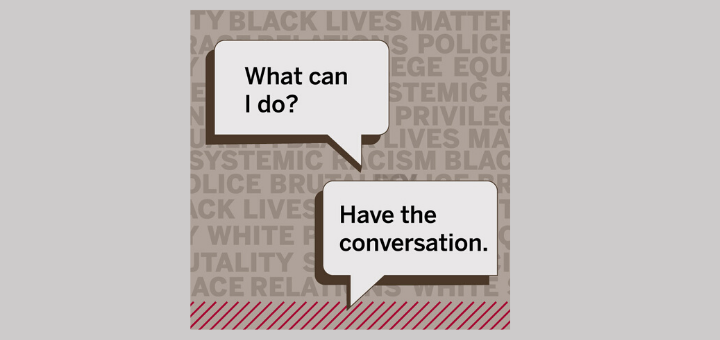Last Updated on June 9, 2020 by Indiana University Kokomo
SOURCE: News release from Indiana University Kokomo
KOKOMO, Ind. – Want to learn more about racism, but aren’t sure where to start? Don’t know how to speak up when you see an objectionable post on social media? Do you have questions, but worry you will offend someone by asking?
Rosalyn Davis, associate clinical professor of psychology at Indiana University Kokomo, and Kate Aguilar, coordinator of student life and campus diversity, both said these kinds of conversations are long overdue, and are crucial, as the United States grapples with racism issues following the death of George Floyd. The Minneapolis man was killed while being arrested May 25 on suspicion of using a counterfeit $20 bill, triggering ongoing demonstrations and protests around the country.
“The last 15 to 20 years of not having those conversation hasn’t gotten us to a better place, and may be why the current situation has been sustained as long as it has,” Davis said.
“We have a national problem, and we cannot keep turning a blind eye to it,” Aguilar said. “How can we do better in the future? We’re all striving to know better, so we can do better.”
Davis and Aguilar offer some tips for how to start and have productive conversations on this sensitive topic.
Do your homework
- Prepare by reading or viewing materials from reference lists widely published online right now, such as NPR’s list of books, films, and podcasts about racism. (https://www.npr.org/sections/opinion/)
- Don’t ask minority friends what to read — they’ve been living in these conversations, and are exhausted.
- Keep a list of questions to discuss with a larger group, such as colleagues, a book club, Bible study, or another forum.
Approach the conversation with great humility
- Make it clear up front that your intent is to be an ally, and offer support.
- If you are concerned you might accidentally say something that could offend the person you are talking to, say so, and apologize in advance.
- Be respectful if the person doesn’t want to discuss the issue with you.
Once the conversation starts — listen respectfully
- Be receptive to what you’re hearing, without being defensive. It’s OK to have a different point of view.
- You don’t have to respond.
“Sometimes, your response can just be, ‘that sucks,’” said Davis.
What do I do when someone makes a racist comment – social media or in person?
- Try to approach it in a non-confrontational manner. For example, say, “I just want to challenge you to think about what you’ve said here. Is this what you want your kids, or your employer, to see?”
- If you would regret not having a conversation later, push forward, even if it makes you uncomfortable.
- Don’t assume that person is a racist — ask questions to find out where that comment came from, which can lead to discussion and change. The comment may come from a place of fear, or lack of education.
- If discussion reveals the statement came from hatred, it’s OK to walk away.
It is important that everyone involved, including law enforcement, play a role in making changes, Aguilar said.
“The question we should be asking is, ‘What’s next for our little world?’” she said. “What can we take from this conversation now, to change life on our campus, and in our community? We can’t disengage from this. We have to decide amongst ourselves that this is what we cannot allow anymore.
“How can we lead from where we are at IU Kokomo, with the lessons of the moment?”
Indiana University Kokomo celebrates 75 years as north central Indiana’s choice for higher education.






